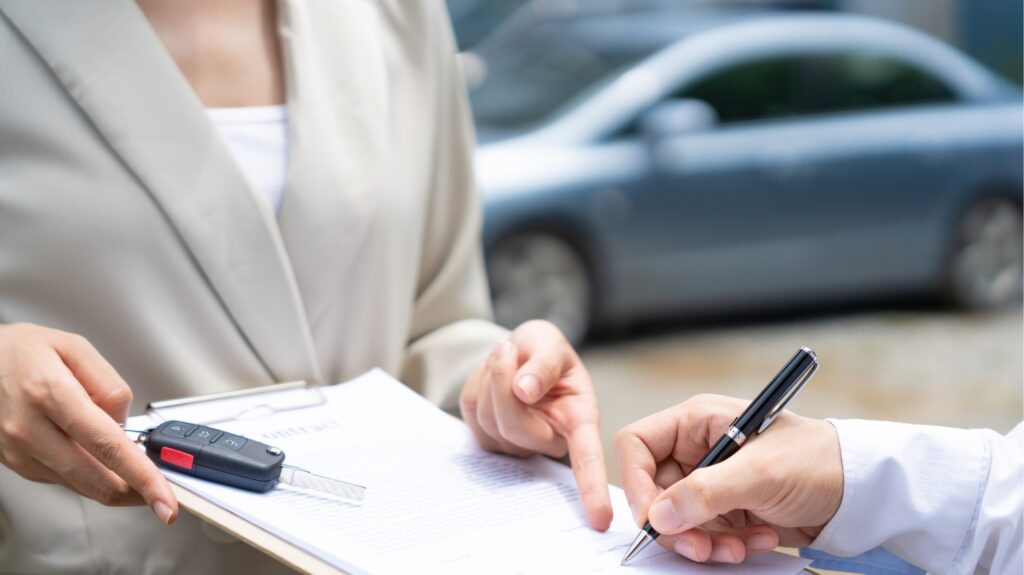Understanding the Process When You Total a Leased Car

If you lease a car, it can be confusing to understand the repercussions of an accident. Understanding how the insurance and leasing companies handle totaled vehicles is essential.
Usually, your lease company will demand the remainder of your payments if the car is totaled. This process requires cooperation with the leasing company and the car insurance company.
Contents
ToggleWhat You Should Do
What happens if you total a leased car? After a car accident, you should move to safety and ensure everyone involved is okay. Once the scene clears, you should call emergency services and exchange insurance information with anyone else in the crash.
Next, you should take the vehicle to a mechanic for an assessment. It’s important to note that a repair shop will usually find more damage than what is initially evident. For this reason, many insurance companies consider cars to be totaled if the cost to repair them is 65% or higher than their actual value.
Unlike owning a car, leasing requires you to return the vehicle in acceptable condition. If your leased vehicle is damaged in a car crash, consider working with a car accident lawyer to determine if it’s worth seeking compensation from the at-fault party.
Report the Accident
Leasing cars is a great way to get the luxury of a new vehicle without making a significant financial commitment. However, leased vehicles present unique challenges when involved in a car accident. Understanding how a leased car can impact your claim for compensation from an at-fault driver is essential.
The first step is to report the accident to the police. Make sure to include all of the crash details in the report. Taking pictures of the scene and any damage to your vehicle is a good idea.
Then, you’ll need to contact your insurance and leasing companies. It’s important to remember that your leasing company expects you to return the car in working condition. If your leased car is totaled, the insurance provider will pay the leasing company for the vehicle’s fair market value before the accident. Any excess funds will then be sent to you.
Take the Car to a Repair Shop
When a car is totaled in an accident, it must be taken to a repair shop for evaluation. The shop should provide a detailed invoice showing the repairs, each replaced part, and whether it was new or used.
Insurance companies typically declare a vehicle totaled when the repair cost exceeds 65% of its worth. This is true whether the car is leased or owned outright.
When a leased vehicle is totaled, the leasing company is responsible for paying any remaining lease payments. This is one reason why you should always carry gap insurance coverage. This type of policy pays the difference between what you owe on your lease and the car’s fair market value following a crash. You can get more information about gap insurance policies by contacting a professional car accident lawyer. You may also get coverage through your car insurance provider if you have liability coverage for the crash.
File an Insurance Claim
Leasing companies safeguard their interests by requiring that drivers carry additional auto insurance coverage. These policies typically include gap coverage, which can help pay the difference between your insurance payout and the balance on the lease agreement.
Insurance companies determine whether to repair a car or total it in an accident by comparing the cost of repairs with the vehicle’s actual cash value at the crash. Generally, the insurance company will consider the car a total loss when the cost of repairs exceeds around 65% of the vehicle’s worth.
As you work with the leasing company and insurance provider to get the damaged vehicle repaired or compensated, it’s a good idea to have a trusted legal advisor by your side to level the playing field with the insurers and protect your rights.
Recommended For You
What is Hire Purchase and is it for You?
Most Inside
Most Inside offers high-quality recommendations and valuable updates to enhance all aspects of your life, providing premium guidance and enriching experiences.




